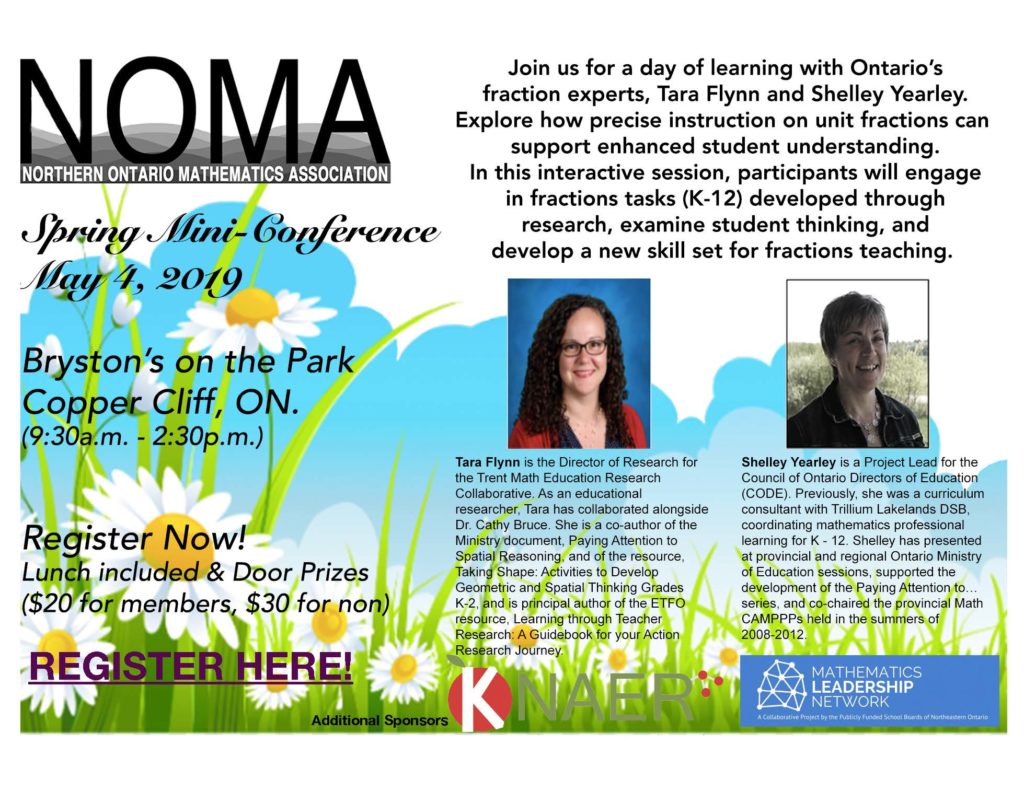Northeastern Ontario Mathematics Leadership Workshop, May 2-4, 2019, Sudbury, ON
Featuring Dr. Cathy Bruce, Tara Flynn & Shelley Yearley.
 May 2nd & 3rd: The content of this two-day session was appropriate for District School Board teams that participated in the MLN and were most relevant for program leadership teams including superintendents, program principal/vice-principals and K-10 math facilitators.
May 2nd & 3rd: The content of this two-day session was appropriate for District School Board teams that participated in the MLN and were most relevant for program leadership teams including superintendents, program principal/vice-principals and K-10 math facilitators.
Day one (Thursday, May 2nd) built upon the math leadership learning that began in the Northeast MLN. Participants engaged in critical thinking around the relationship between learning, leading and monitoring, as they investigated ways to empower all educators to be leaders through learning with mathematics as the central context.
Day two (Friday, May 3rd) featured Dr. Cathy Bruce, Tara Flynn and Shelley Yearley. The focus was specifically on Teacher, Student and Collective Efficacy and Understanding Fractions. The participants examined key criteria of professional learning models that build teacher efficacy and pedagogical content knowledge in math. Emphasis was placed on learning trajectories and assessment as they focused on the foundations of fractions – unit fractions (counting, representations and spatial reasoning, and how this is the base moving up through the Fractions Learning Pathway).
Day three (Saturday, May 4th) was hosted by NOMA and featured Shelley Yearley and Tara Flynn. Eight years of research in Ontario classrooms from K through to Grade 12 has resulted in the development of the Fractions Learning Pathways, a framework for planning fractions teaching. In this interactive session, participants engaged in fractions tasks developed through the research, examined student thinking, and developed a new skill set for fractions teaching. With a focus on building strong foundations for young students and strategically closing gaps for older students, this learning highlighted the important role that unit fractions understanding plays in subsequent concepts, such as equivalence, inequality and operations. The use of powerful representations, precise language and purposeful planning enabled educators to immediately implement the materials into their practice.
